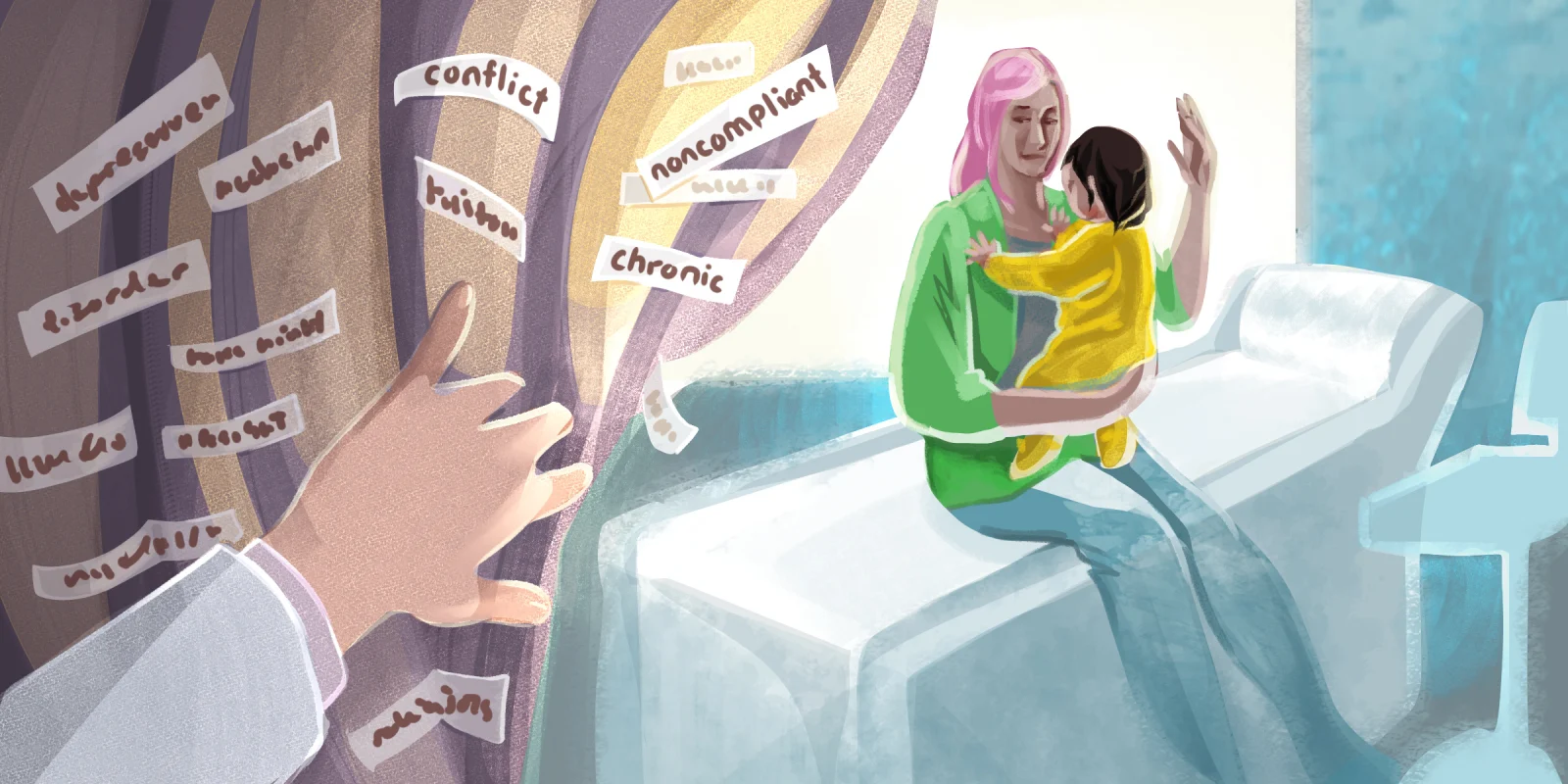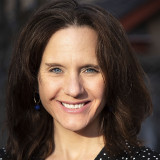I aim to begin my day in complete silence, reviewing my schedule with the door to my office closed and the lights off, allowing the morning sunlight to peek through the window. This initial stillness offers a chance to prepare for the upcoming day with a semblance of calm, before the rush and chaos that is all too familiar in clinic life. On this particular morning, when I scroll through my schedule, it appears to be quite full, but at least with what appear to be straightforward complaints: sore throats, coughs, stomach aches. I have to admit that I find some degree of comfort in seeing these easy cases, anticipating that at least the visits will be fast and that I shouldn’t fall behind. As I continue to scroll, however, I stop at Drug Addicted Newborn on the schedule. I sigh. Definitely not straightforward. As I start to mentally prepare myself for the likelihood of falling behind schedule, I take another pause and reflect on a new task I’ve assigned to myself: to begin each patient encounter somewhat empty-handed, without attaching labels or preconceived diagnoses. In this case, empty-handed looks like not beginning the encounter with the expectation of a mom unwilling to stop using drugs, a baby at risk of being developmentally behind, and a laundry list of referrals I will need to make. Before making any specific diagnoses, I need to ask, review, examine, and listen carefully. Easy in theory, but harder in day-to-day practice.
When it’s time for the baby’s appointment, I cue up with my new task at hand and remind myself that there is a lot I don’t know about this mother and baby duo, until I take the time to listen. And so … I listen. The mom smiles instantly when I enter the exam room. She’s glowing while she sways her newborn girl, with jet black hair and already crystal blue eyes, back and forth. “How is your baby?” I ask. “Amazing,” is her response. The mom goes on to explain that when delivering her baby, she tested positive for drugs and was given the option to move into a treatment facility with the baby, or put the baby in foster care. She chose the treatment facility. “I can’t believe how much I just love her.”
Fast forward, and the child is thriving. She has a personality that bursts with joy, evident by her frequent smiles and giggles. At every visit, the mom gushes over how amazing her daughter continues to be, and is overjoyed with each milestone that is reached. Over the course of our visits, I have come to know this family as being so much more dynamic than any of the labels they came with. I have observed this mother fall so deeply in love with her baby, it shocks her. I have watched her get sober, look for housing, repair a relationship with her own mother, and ask for help. The joy that I have witnessed this mom discover through parenting has warmed my heart immensely. In regards to the baby’s exposure to drugs in utero, there have been no signs of any adverse outcomes.
This task of approaching patients empty-handed has led to a somewhat new phase of my clinical practice. I like to think of it as the Great Unlearning. What am I unlearning? I’m unlearning the need to instantly reach for a diagnosis, and the pattern of defining a patient by their assigned labels before even going to see them. The sense of comfort that I previously took refuge in when reviewing a schedule of easy cases now makes me take pause. I remind myself that diagnoses are easy, but individual humans … not as much. Each patient comes to me with a unique presentation, and their symptoms are only part of the story. While the diagnosis is what we conclude with, it's not who the patient is as an individual. I’d be lying if I said this process of unlearning has been consistently smooth. When the chaos of the day builds, I still recognize a tendency to try and shift gears into automatic pilot mode. However, increasingly, I’m becoming more sensitive to the risks of missing an important detail, not putting information in the right context, or misunderstanding what is being explained.
My Great Unlearning has resulted in my days being a bit more spontaneous, a bit more humanized, and — dare I say — a bit more enjoyable. Being present for my patients’ honest and authentic stories has allowed for that early morning calm to seep into more of my day, accepting some of the chaos as just being a part of the process. As I truly get to know my patients better as individuals, I find that they are willing to offer me more than just symptoms. I’m given true trust, and that has made me a much more effective clinician than I could have ever hoped to be if I had simply approached them as a diagnosis to be made. My Great Unlearning has proven to be one of the most useful skills in the evolution of my practice as a nurse practitioner, and ironically, it’s become one of the greatest things I’ve learned so far.
What's the greatest thing you've learned or unlearned in your medical career?
Kyra is a pediatric NP who trained in Denver, CO and now works in a neighborhood community clinic in the Bay Area. She loves having the opportunity to interact with families and their community as a whole. In her free time, Kyra enjoys spending time with her two kids doing anything that requires being outside in nature. Kyra is a 2021–2022 Doximity Op-Med Fellow.
All names and identifying information have been modified to protect patient privacy.
Illustration by April Brust






